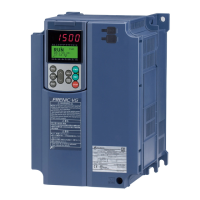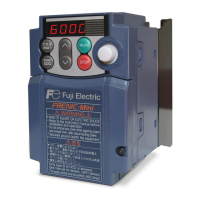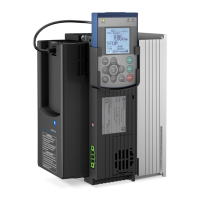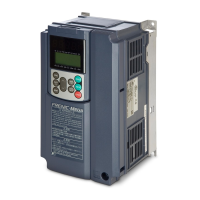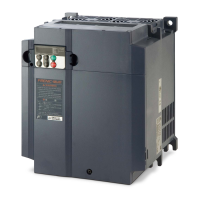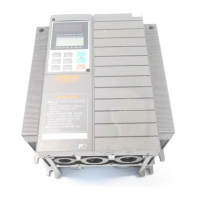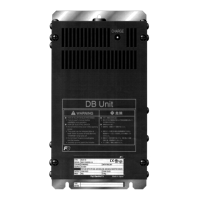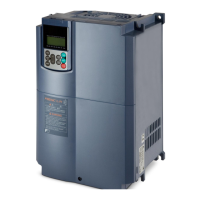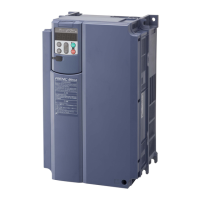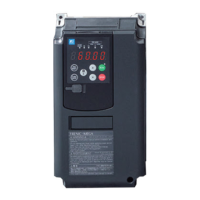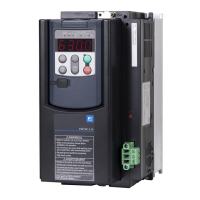5.3 Description of Function Codes
5-137
FUNCTION CODES
Chap 5
E65
Reference loss detection (continuous running frequency)
When the analog frequency command (setting through terminal [12], [C1] (C1 function) or [C1] (V2 function) has
dropped below 10% of the reference frequency within 400 ms, the inverter presumes that the analog frequency
command wire has been broken and continues its operation at the frequency determined by the ratio specified by
E65 to the reference frequency. And “REF OFF” signal comes on.
( Function codes E20, E21 and E27, data = 33)
When the frequency command level (in voltage or current) returns to a level higher than that specified by E65, the
inverter presumes that the broken wire has been fixed and continues to run following the frequency command.
In the diagram above, f1 is the level of the analog frequency command sampled at any given time. The sampling is
repeated at regular intervals to continually monitor the wiring connection of the analog frequency command.
• Data setting range:0 (Decelerate to stop) 20 to 120 % 999 (Disable)
Avoid an abrupt voltage or current change for the analog frequency command. An abrupt change may be
interpreted as a wire break.
“999” (Disable) allows the REF OFF signal (“Reference loss detected”) to be i
ssued,
but does not allow the reference frequency to change. (The inverter runs at the analog frequency
command as specified.)
the reference frequency level at which the broken wire is recognized as fixed is
“
(%) or higher, the reference frequency level at which the wire is recognized as fixed is
“
The reference loss detection is not affected by the setting of analog input adjustment (filter time
constants: C33, C38, and C43).
E76
DC link bus low-voltage detection level
“U-EDC” signal comes ON when the DC intermediate voltage drops below E76 (DC link bus low-voltage detection
level), and it goes OFF when the DC intermediate voltage exceeds E76.
( Function codes E20, E21 and E27, data = 77)
Reference loss
detection REF OFF
Frequency command
(internal data)
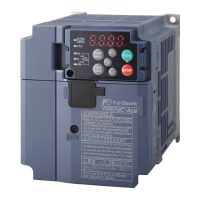
